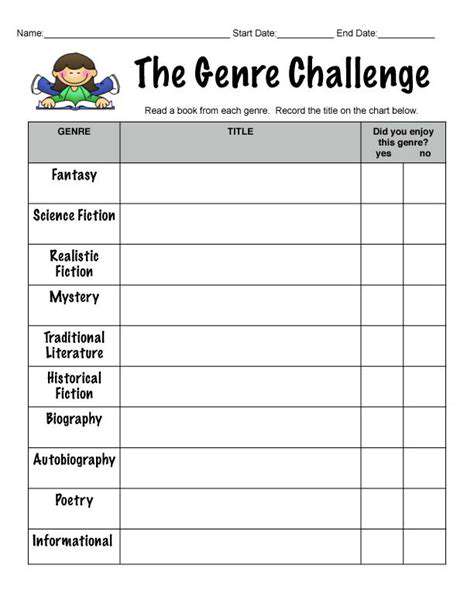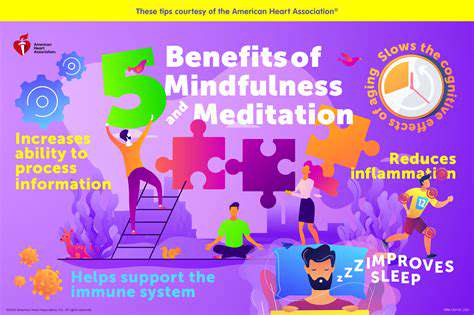How Music Can Lower Stress and Enhance Well Being
The Therapeutic Power of Music
The Science Behind Music and Stress Reduction
Numerous studies have demonstrated that listening to music can significantly decrease levels of the stress hormone cortisol. When individuals are exposed to calming melodies, their physiological responses may improve, leading to a reduction in heart rate and blood pressure. This biological response serves as a mechanism through which music can foster relaxation and enhance overall well-being.
Research has shown that the type of music a person listens to can influence their mood and stress levels. For example, classical music often reduces anxiety, while upbeat genres such as pop can elevate a person's mood. By creating a tailored playlist that resonates with individual preferences, one can harness the therapeutic capabilities of music to combat stress effectively.
Moreover, the emotional and cognitive engagement that music elicits can divert attention from stressors. When a person actively listens to music, they may enter a state of flow—an experience where they are fully immersed and focused, thereby allowing for temporary relief from worries and anxieties.
Music as a Tool for Mindfulness and Meditation
Incorporating music into mindfulness practices can enhance the overall experience of meditation. Calming sounds can help anchor thoughts, allowing individuals to remain in the present moment. This synergy between music and mindfulness encourages deeper relaxation and greater self-awareness, which are pivotal in reducing stress.
The rhythmic aspect of music can facilitate deeper breathing techniques, helping individuals engage fully with their breath. As the mind concentrates on the music's rhythm and melody, it becomes easier to let go of intrusive thoughts and emotional turmoil. Thus, music can act as a tool in fostering a meditative state that nurtures mental well-being.
Furthermore, many guided meditations incorporate soothing music to create an inviting atmosphere. This combination can lead to a more profound meditative experience, allowing participants to experience heightened levels of calm and tranquility.
Social Connections Through Shared Musical Experiences
Music has a unique ability to bring people together, forming social bonds that can enhance emotional well-being. Participating in group activities such as concerts, music festivals, or communal singing can foster connections and enhance feelings of belonging, which are vital for reducing stress and promoting mental health.
Sharing musical experiences can stimulate positive emotions and shared memories, reinforcing interpersonal bonds. These social interactions often lead to increased feelings of support and connectedness, which can serve as a powerful buffer against stress.
Moreover, engaging with others through music can provide avenues for communication and emotional expression. For individuals facing challenging times, discussing music preferences or sharing songs that resonate can facilitate connection and understanding, further enhancing mental well-being.
The Role of Personalized Playlists in Stress Management
Creating personalized playlists tailored to individual preferences can be a strategic approach to managing stress. By selecting songs that evoke positive memories or emotions, listeners can create a soundtrack for relaxation and calm. This personal touch transforms music from a passive activity into an active tool for emotional regulation.
Certain playlists can be designed specifically to address different stress levels or situations. For instance, when feeling overwhelmed, soft instrumental music can create a peaceful atmosphere conducive to relaxation, while energizing tracks can motivate physical activity, further alleviating stress.
Additionally, exploring various music genres allows individuals to discover new sounds that resonate with them on a deeper level, often leading to a significant enhancement in their mood and overall well-being. Regularly updating and curating these playlists ensures a fresh and engaging experience, keeping the therapeutic benefits of music dynamic and effective.
Mechanisms Through Which Music Reduces Stress
Physiological Responses to Music
When listening to music, the brain releases various chemicals, including dopamine and oxytocin, which can promote feelings of relaxation and happiness. These neurochemical responses can lead to a reduction in stress levels. Several studies have shown that even a short session of listening to your favorite tunes can decrease cortisol, the hormone associated with stress.
Additionally, music can influence heart rate and blood pressure. Slow-tempo music has been found to lower heart rates, while fast-tempo music can increase them. The regulation of heart rate and blood pressure through music can contribute to a more relaxed state, helping individuals cope with stress more effectively.
Music can also enhance respiratory function. Listening to calming music encourages deeper breathing, which is significant for stress reduction. When individuals breathe more deeply, it promotes relaxation by facilitating the flow of oxygen in the body and activating the parasympathetic nervous system.
These physiological changes not only help in lowering stress but also improve overall health and well-being. By incorporating music into daily routines, individuals can achieve a more balanced state of mind, making them more resilient in the face of stressors.
The Psychological Impact of Music
Music can serve as a powerful tool for emotional expression, allowing individuals to process their feelings and thoughts. Listening to lyrics that resonate can provide a sense of understanding and validation, making individuals feel less isolated in their experiences. This connection can significantly mitigate feelings of stress and anxiety.
Moreover, music therapy has emerged as an effective therapeutic intervention for individuals experiencing high levels of stress or anxiety. Therapists often use music to facilitate emotional healing, enabling clients to explore their thoughts and feelings in a safe environment. This method can lead to greater self-awareness and understanding, further reducing feelings of stress.
Creating music, such as playing an instrument or singing, can also promote a sense of accomplishment and personal efficacy. Engaging in these activities allows individuals to focus their minds and energies on something positive, diverting attention from stressors and fostering a sense of empowerment.
Finally, the communal aspects of music, such as participating in concerts or group sing-alongs, can enhance social connections. These relationships and shared experiences create a support system that can buffer against stress, providing individuals with the reassurance that they are not alone in their struggles.
Different Genres for Different Benefits

Understanding the Therapeutic Effects of Music
Music has been a source of healing for centuries, with various cultures using it as a therapeutic tool. Listening to soothing melodies can significantly reduce anxiety and promote relaxation. This is particularly effective in stressful environments, where music acts as a comforting barrier from overwhelming stimuli.
Research has shown that certain frequencies and rhythms can resonate with our emotional state, helping to shift our mood and build resilience against stress. The therapeutic effects of music are not just psychological; they also trigger biochemical reactions that promote well-being. This includes increased production of endorphins and dopamine, which are key players in mood regulation.
Moreover, engaging with music—whether by playing an instrument or singing—can enhance our sense of agency and achievement, further contributing to our emotional health. This active participation can foster connections with both ourselves and others, which is vital in times of stress.
The Role of Upbeat Music in Motivation
Upbeat and lively music can serve as a powerful motivator, making tasks feel less daunting. Studies indicate that people often perform better when they listen to energetic tunes, as these rhythms can elevate heart rate and help stimulate physical activity.
For instance, many people find that a high-tempo song encourages them to push through workouts or engage in productive tasks at work. This transformation from a lethargic state to an energized one can profoundly impact productivity and job satisfaction.
Incorporating upbeat music into daily routines can also create a positive atmosphere, encouraging creativity and collaboration. The infectious nature of such genres can lift spirits and foster a supportive environment, crucial for minimizing stress levels.
Relaxing Genres for Stress Relief
When it comes to relaxation, certain genres stand out for their calming properties. Genres such as classical, ambient, and nature sounds are often recommended for their soothing melodies and rhythms that can facilitate meditation and mindfulness practices.
Listening to these calming tracks can reduce heart rates and lower levels of the stress hormone cortisol. For many, these sounds provide an escape from daily pressures, allowing for a mental reset that is essential for overall well-being.
Integrating relaxing music into daily routines—whether during a morning coffee or while unwinding before bed—can be a simple yet effective strategy for managing stress. This practice not only enhances relaxation but also prepares the mind for a more restful sleep.
Creating a Personalized Stress-Relief Soundtrack
Understanding the Impact of Music on Stress Levels
Music serves as a powerful tool in stress management due to its ability to influence emotional states. Research has shown that listening to music can lower cortisol levels, the hormone primarily associated with stress. This reduction not only helps individuals feel calmer but also contributes to physical health improvements. By impacting brain regions that process emotions, music can effectively shift our mental state, offering a momentary escape from stressors.
Moreover, different genres of music have varying effects on the listener. For instance, classical music is often associated with relaxation and tranquility, making it ideal for contexts where stress relief is sought. Conversely, upbeat songs may energize and uplift one's mood, promoting a sense of positivity. Tailoring music choices to individual preferences can greatly enhance these benefits.
Incorporating music into everyday routines—such as during commutes, workouts, or even meditation—can systematically lower stress levels. By consistently engaging with music, individuals can create a more balanced mental environment, allowing them to navigate life's challenges with greater resilience.
Curating a Personal Playlist for Well-Being
Creating a personalized stress-relief soundtrack involves selecting music that resonates emotionally and psychologically with the individual. This curation process begins with identifying the types of music that elicit positive feelings or help to calm the mind. People might explore various genres, from calming ambient sounds to their favorite nostalgic tracks.
In addition to individual taste, the tempo and rhythm of selected tracks play crucial roles in their effectiveness. Slower tempos can induce relaxation, while faster-paced music can energize the listener. A well-rounded playlist might include a mix of both to cater to different moods and situations, ensuring the individual can respond to stressors dynamically.
Lastly, it’s beneficial to update and evolve the playlist regularly. As moods, circumstances, and personal preferences change, a dynamic soundtrack can continuously adapt, providing ongoing support for mental well-being. Experimenting with new music and incorporating feedback from personal listening experiences can lead to continued stress relief and emotional stability.


